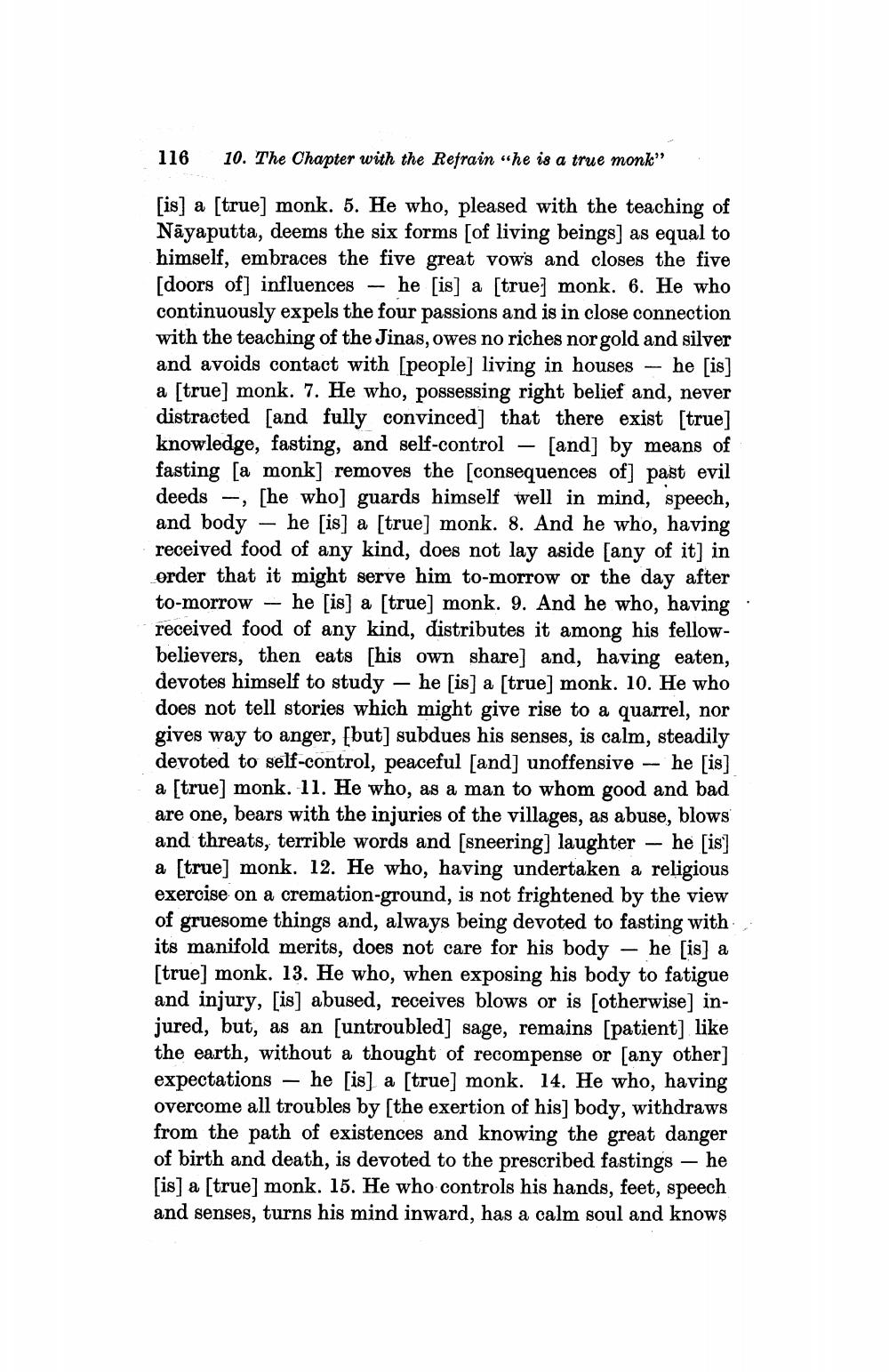________________
116
10. The Chapter with the Refrain "he is a true monk"
[is] a [true) monk. 5. He who, pleased with the teaching of Nāyaputta, deems the six forms [of living beings) as equal to himself, embraces the five great vows and closes the five [doors of] influences – he [is] a [true] monk. 6. He who continuously expels the four passions and is in close connection with the teaching of the Jinas, owes no riches nor gold and silver and avoids contact with [people) living in houses - he [is] a [true] monk. 7. He who, possessing right belief and, never distracted [and fully convinced] that there exist [true] knowledge, fasting, and self-control — [and] by means of fasting [a monk] removes the [consequences of] past evil deeds - [he who] guards himself well in mind, speech, and body - he [is] a [true) monk. 8. And he who, having received food of any kind, does not lay aside [any of it] in order that it might serve him to-morrow or the day after to-morrow – he [is] a [true] monk. 9. And he who, having received food of any kind, distributes it among his fellowbelievers, then eats [his own share] and, having eaten, devotes himself to study – he [is] a [true] monk. 10. He who does not tell stories which might give rise to a quarrel, nor gives way to anger, [but] subdues his senses, is calm, steadily devoted to self-control, peaceful [and] unoffensive -- he [is] a [true] monk. 11. He who, as a man to whom good and bad are one, bears with the injuries of the villages, as abuse, blows and threats, terrible words and (sneering] laughter – he [is] a [true) monk. 12. He who, having undertaken a religious exercise on a cremation-ground, is not frightened by the view of gruesome things and, always being devoted to fasting with its manifold merits, does not care for his body – he [is] a [true] monk. 13. He who, when exposing his body to fatigue and injury, [is] abused, receives blows or is (otherwise) injured, but, as an [untroubled] sage, remains (patient] like the earth, without a thought of recompense or [any other] expectations – he [is] a [true) monk. 14. He who, having overcome all troubles by the exertion of his] body, withdraws from the path of existences and knowing the great danger of birth and death, is devoted to the prescribed fastings – he [is] a [true) monk. 15. He who controls his hands, feet, speech and senses, turns his mind inward, has a calm soul and knows




